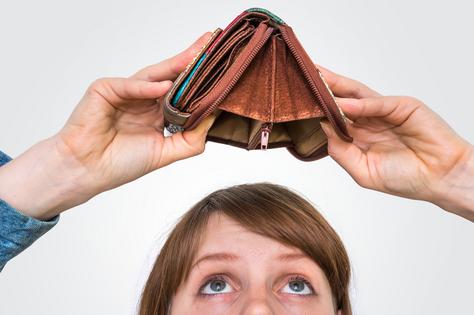We tend to underestimate our future expenses – here's one way to prevent that
Published in Science & Technology News
The Research Brief is a short take about interesting academic work.
When asked to estimate how much money they would spend in the future, people underpredicted the total amount by more than C$400 per month. However, when prompted to think about unexpected spending in addition to typical expenses, people made much more accurate predictions.
These are the main findings of a series of studies and experiments that we conducted and which have just been published in the Journal of Marketing Research.
In our first study, we began by asking 187 members of a Canadian credit union to predict their weekly spending for the next five weeks. Then, at the end of each week, we asked them how much they actually spent.
For the first four weeks, people underpredicted their weekly spending by about $100 per week or $400 for the month.
In the study’s fifth and final week, we ran an experiment to see if we could improve people’s prediction accuracy.
Specifically, we randomly assigned participants to one of two groups. In group one, participants estimated their spending for the next week just as they had done in previous weeks. These folks once again significantly underpredicted their spending.
In group two, participants were asked to think of three reasons why their spending for the next week might be different than usual before making their estimate. This led them to make higher and much more accurate predictions – coming within just $7 of what they actually spent.
Importantly, participants in each group spent roughly the same amount of money that week, on average. The only difference between the two groups was whether they accurately predicted that amount.
Next, we conducted nine experiments to better understand why people underpredict their spending and whether being prompted to think of unusual expenses helps improve accuracy. In all, over 5,800 people participated in these experiments, including a representative sample of U.S. residents.
These experiments revealed two important insights.
First, people primarily base their spending predictions on typical expenses like groceries, gasoline and rent. They usually fail to account for irregular – though still common – expenses like car repairs, last-minute concert tickets or one-off health care bills. This is what leads to underprediction.
Second, prompting people to think of irregular expenses in addition to typical expenses helps them to make more accurate spending predictions. In our studies, people did not factor in atypical expenses unless we asked them to do so.
Helping people improve the accuracy of their spending predictions could help them improve their financial well-being.
Underpredicting expenses can be costly. For example, 12 million Americans borrow a total of more than $7 billion in payday loans each year because they can’t meet their monthly expenses. These loans typically have extremely high interest rates – more than 250% in some states.
Payday loans also come due in full so quickly that around three in four borrowers end up borrowing again to pay off the original loan.
If consumers could better anticipate how much money they will spend in the future, it might help motivate them to spend less and save more in the present.
In fact, one of our studies shows that our suggested prediction strategy not only boosted spending estimates, it also increased intentions to save.
Members of our research team are currently investigating if, when and why underpredicting one’s expenses may be beneficial. For example, if a person sets an optimistically low budget and actively tracks their spending against it, does that help them reduce their spending?
We are also investigating whether people who work in the gig economy show a corresponding tendency to mispredict their future income.
This article is republished from The Conversation, an independent nonprofit news site dedicated to sharing ideas from academic experts. It was written by: Ray Charles "Chuck" Howard, Texas A&M University; Abigail Sussman, University of Chicago; David J. Hardisty, University of British Columbia, and Marcel Lukas, :="" memberservices.theconversation.com="" newsletters="" ?nl="weekly&utm_source=ArcaMax&utm_medium=related-link&utm_campaign=subscribe-link-1&utm_content=article-"">subscribe to our weekly newsletter.
Read more:
Payday lenders have embraced installment loans to evade regulations – but they may be even worse
Postal banking could provide free accounts to 21 million Americans who don’t have access to a credit union or community bank
The authors received funding for this research from the Social Sciences and Humanities Research Council of Canada.
David J. Hardisty receives funding from the Social Sciences and Humanities Research Council of Canada.
Abigail Sussman and Marcel Lukas do not work for, consult, own shares in or receive funding from any company or organization that would benefit from this article, and have disclosed no relevant affiliations beyond their academic appointment.








Comments